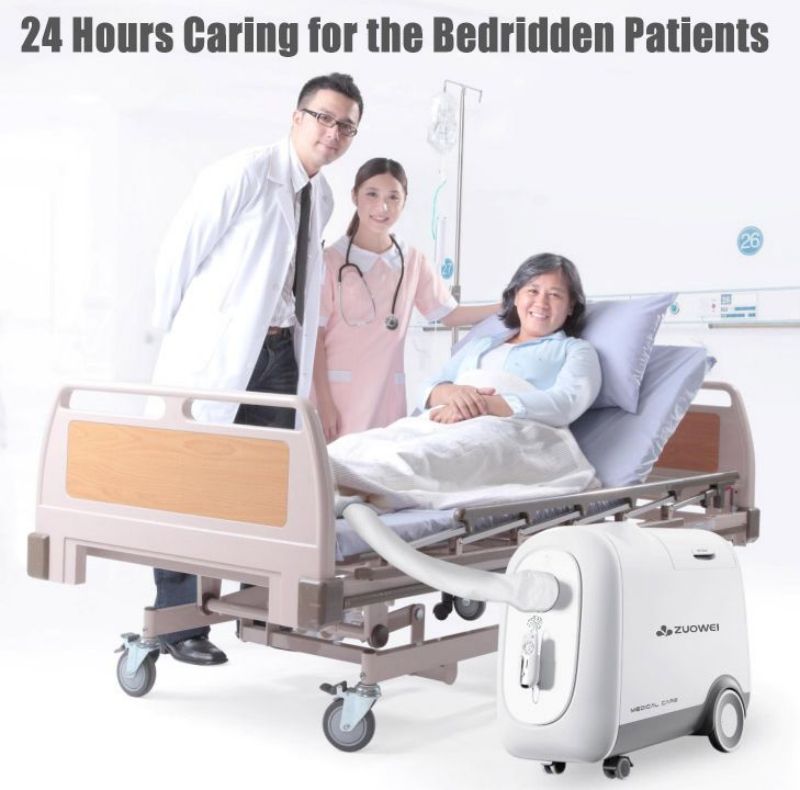
When caring for a bedridden person, they must be offered the utmost compassion, understanding and support. Bedridden older adults may face additional challenges, such as incontinence, which can cause physical and emotional distress for patients and their caregivers. In this blog, we discuss the importance of home care for bedridden individuals, especially those with incontinence issues, and how professional care can meet their unique needs.
Understanding the effects of incontinence:
Incontinence, the involuntary loss of urine or stool, affects millions of older adults around the world. For bedridden individuals, incontinence management adds an extra layer of complexity to their daily care. It requires a sensitive approach that respects their dignity and protects their privacy while addressing their health and hygiene concerns.

Benefits of home care:
Home care is an invaluable option for bedridden seniors, providing comfort, familiarity and a sense of independence. Being comfortably in their own home can significantly improve their overall well-being, allowing them to maintain a level of autonomy that is critical to their mental and emotional well-being.
In a home care setting, caregivers can tailor their approach to meet the specific needs of a bedridden person. A comprehensive plan of care can be designed, taking into account any mobility restrictions, nutritional needs, medication management, and most importantly, management of incontinence challenges.
Professional care for incontinence:
Addressing incontinence requires a sensitive and skilled approach. Home care providers can offer expertise in dealing with incontinence-related issues and creating a safe and hygienic environment for bedridden individuals. Some important aspects of this specialized care include:
1. Personalized Hygiene Assistance: Trained caregivers assist bedridden individuals with bathing, grooming, and daily personal hygiene tasks to ensure their comfort and cleanliness. They also help in timely replacement of incontinence products to prevent skin irritation or infection.
2. Keep skin healthy: For bedridden people, immobility can often lead to skin problems. Nurses ensure proper skin care routines, implement a regular turning schedule, and use a variety of assistive tools to relieve pressure sores.
3. Diet and fluid management: Managing diet and fluid intake can help regulate bowel and bladder function. Nurses work with healthcare professionals to develop an appropriate meal plan based on individual needs.
4. Safe Transfer and Moving Techniques: Skilled paramedics are trained to use specialized equipment and techniques to safely transfer bedridden individuals without causing any discomfort or injury. This reduces the risk of potential accidents during transfer.
5.Emotional support: Emotional help is equally important. Nurses develop strong relationships with patients, providing companionship and emotional support, which can significantly improve the overall quality of life of a bedridden person.

The Importance of Dignity and Privacy:
When providing care for a bedridden individual with incontinence, maintaining the dignity and privacy of the individual is of paramount importance. Open and respectful communication is essential, and patients are involved in the decision-making process as much as possible. Nursing staff expertly handle incontinence-related tasks, ensuring maximum privacy is maintained while maintaining the self-respect and dignity of the bedridden individual.
in conclusion:
Caring for bedridden seniors with incontinence issues requires dedicated home care that prioritizes their physical, emotional, and mental health. By providing compassionate assistance while maintaining dignity and privacy, caregivers can dramatically improve the lives of bedridden people and support their families. Choosing home care ensures that bedridden individuals receive the necessary personal care, specialized training, and a care plan tailored to their specific needs. By providing high-quality care, bedridden individuals and their families can meet the challenges of controlling incontinence with confidence and calm.
Post time: Aug-24-2023





